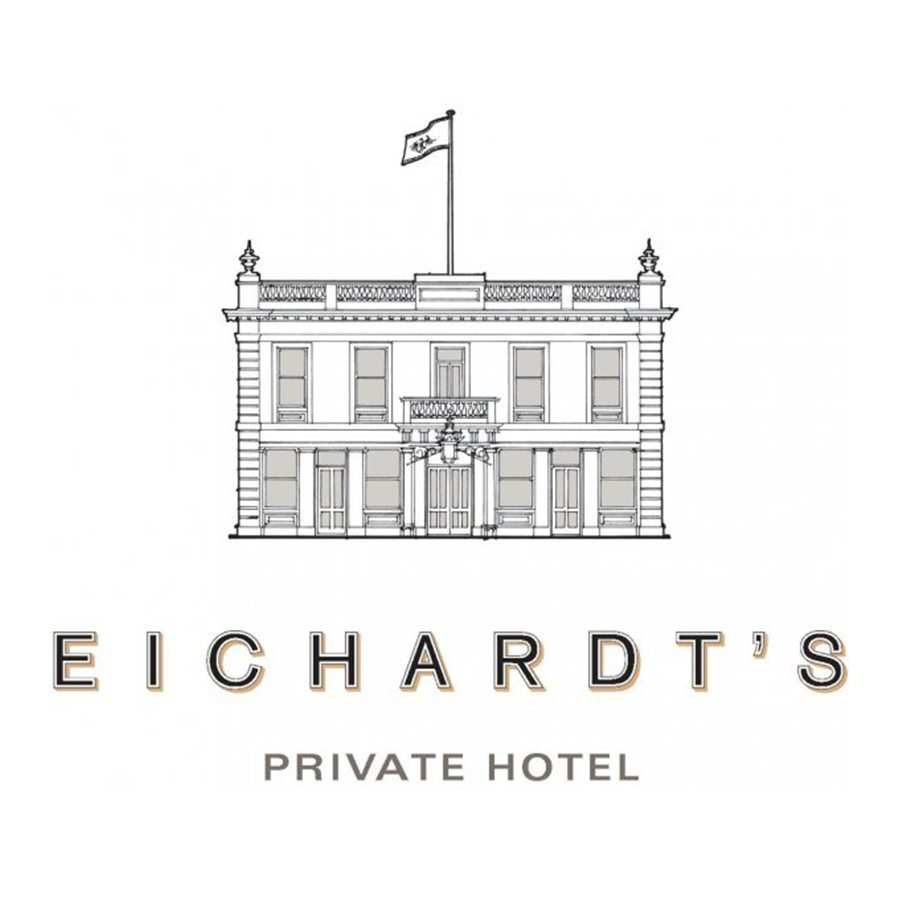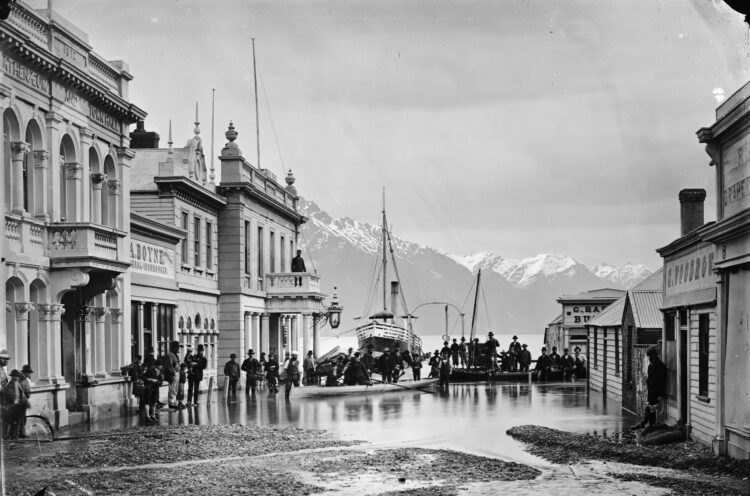Our History Series: Julia’s Legacy
Great respect and great responsibility
These were developmental years for Eichardt’s, encouraged by the fortitude of several individuals. Though Albert Eichardt was instrumental in the progression of the hotel, his wife Julia Eichardt would prove to be just as integral to the establishment and an admirable Queenstown figure, even to this day.
After a long severe winter in 1878 had left an unusual depth of snow on the mountains, the spring thaw set in swiftly and the river Clutha burst its banks causing chaos across the Otago region. Parts of Queenstown were up to 6ft underwater, and boats were being used to traverse the hills and carry people to higher grounds. As a lakefront destination, Eichardt’s was the worst hit, and the devastating impact was felt years after the event. But as key members of the town, both Julia and Albert led the relief effort, transporting their own guests and members of the town to shelter, further highlighting their prominence.
However, with this great responsibility came great debt. Albert has spent a great deal of money in building his reputation internationally and ensuring his establishment ran to a high standard. His list of debtors was published in the Wakatipu Mail, pushing Albert to pay or trade out of his business to avoid bankruptcy. After a week of subsequent meetings with his creditors, and intervention from the local council, Albert agreed to pay off his debt pro rata, subsequently saving Eichardt’s Private Hotel.
Albert began taking on more responsibility in the growing Queenstown. Seen as a figurehead, he was a senior member of the local council, involved heavily in the Masonic Lodge, in the Volunteer rifles and was also lead conductor for the local Philharmonic orchestra and Garrison band.
Julia’s Impact
In 1882, at the age of 53, Albert sadly passed away suddenly from pneumonia.
For ten years, Julia took Eichardt’s Private Hotel under her wing and made it her own. She took it from strength to strength, washing, baking, looking after the guests’ children and serving the men’s vices – she even had a special room, The Clay Jar, to put these especially drunk men in. Julia was recognised for her kindly, generous manner assisting the district’s less fortunate and playing an important role in Queenstown’s development.
Ingenuity and passion
On the 10 November 1884, Queenstown’s reticulated water supply came into operation. Julia developed a Peloton wheel, and generated her own power to ensure that her hotel was one of the first buildings in town to be fully electrical. She was able to implement lighting and bells into each room to ensure her guests were looked after to the best of her ability. In 1886, Julia knocked down the last of the original wooden buildings and extended the hotel to the size of the current heritage building we have today.
At the age of 54, Julia passed away after a head injury sustained whilst falling over a board left on the back steps of Eichardt’s Private Hotel. The news of Julia’s death hit the town hard, with the local paper stating that her death had ‘cast a gloom over the whole town’. Special prayers were said at multiple churches across the region, and the council halted weekly meetings and local businesses closed in remembrance. Her funeral procession was attended by over 700 people and was led by four Catholic priests – a true testament to her legacy and adoration.

